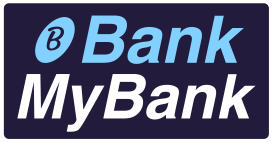Lot of Savings Accounts: According to Matt Gromada, managing director and head of Youth, Family, and Starter Banking at Chase, there is no recommended minimum number of savings accounts, but opening multiple ones is a frequent tactic.
He noted that some people might find it advantageous to have separate savings accounts for each item or goal.
Although most people have many savings objectives, they may vary in terms of the sums they need to save and the deadlines they’ve set for each. For instance, you could set aside money for both a trip and a new automobile that you intend to buy in a couple of years.
Savings accounts can be used in a similar way, according to Gromada, to the coin jar you might set up for a road trip.
Read More: NBCFDC General Loan Scheme
Savings accounts for emergencies
Everybody needs to have an emergency savings account that is separate from other accounts so that it can serve as a source of money for any unforeseen bills. A reserve for unexpected expenses, such as car repairs or medical bills, might prevent you from incurring debt, which raises expenditures.
For you to be able to fulfill your demands if you lose your income, many experts advise saving at least three months’ worth of necessary living expenses in an emergency fund. If you keep your emergency fund in a separate account, you’ll be less likely to use it unless an unexpected need arises that requires it.
Short-Term Goals:
If you have specific short-term financial goals, such as a vacation or a down payment on a car, it can be beneficial to create a separate savings account for each goal. This helps you track your progress and prevents you from dipping into funds earmarked for other purposes.
Expense Segmentation:
Some people prefer to separate their regular monthly expenses from their savings goals. You can have a checking account for daily expenses and one or more savings accounts for different savings objectives.
Budgeting and Organization:
Multiple savings accounts can simplify your budgeting process. You can allocate a portion of your income to each account, making it easier to manage and monitor your financial goals.
Different Banks or Institutions:
Some individuals choose to have savings accounts with different banks or financial institutions to take advantage of higher interest rates, access specific features, or diversify their accounts.
Emergency Fund Tiers:
For added financial security, you may consider creating tiers within your emergency fund. For instance, you could have one account for basic emergencies and another for more significant unexpected expenses.
Factors to Consider
While multiple savings accounts can offer various benefits, it’s essential to consider your unique financial situation and goals:
Financial Goals:
Assess your short- and long-term financial goals. Determine if having separate accounts for each goal will help you stay on track and meet those objectives.
Banking Fees:
Be mindful of potential fees associated with multiple accounts, such as monthly maintenance fees. Some banks may waive fees if certain criteria are met.
Account Access:
Ensure that you can access your accounts easily and without restrictions, especially if they are with different banks or institutions.
Interest Rates:
Check the interest rates offered by your chosen savings accounts. High-yield savings accounts may be an attractive option for some of your funds.
Organizational Skills:
Consider your ability to stay organized and manage multiple accounts effectively. Automation and budgeting tools can be helpful in this regard.
Read More: What is Ladli Beti Scheme and Benefits?
Conclusion
The number of savings accounts you should have ultimately depends on your financial goals, preferences, and organizational skills. While multiple accounts can provide structure and help you achieve specific objectives, it’s essential to strike a balance that suits your financial situation. Remember that the primary goal is to save and grow your money, so choose a savings account strategy that aligns with your financial aspirations and makes managing your finances more convenient and effective.




